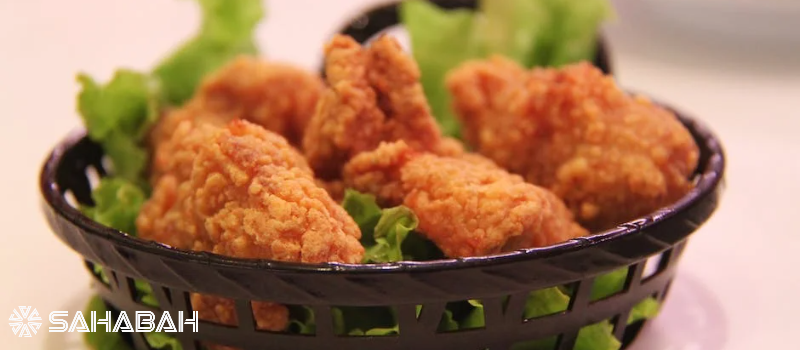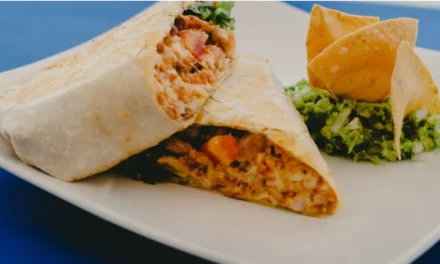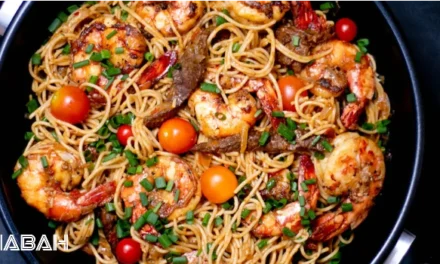With its uniquely delicious chicken finger meals, Canes has become one of the most popular and fastest growing restaurant chains across the United States. But for Muslim diners, one pressing question remains – is Canes Chicken halal?
This comprehensive article will dive deep into Canes’ ingredients, sourcing, food preparation and certification to determine if it meets Islamic dietary requirements.
We’ll provide guidance to help Muslims make informed decisions when ordering at this favorite fast food establishment.
Understanding Halal Food Standards in Islam
Halal is an Arabic term meaning permissible or lawful within Islamic law. For a food to be considered halal, it must adhere to strict guidelines outlined in the Holy Quran and the teachings of the Prophet Muhammed (PBUH).
The key criteria for halal food include:
-
It must come from a permissible source. Meat must come from an acceptable halal animal like cow, chicken, lamb or goat that was slaughtered according to zabihah – the approved Islamic method of slaughter. Non-meat foods must also come from halal origins.
-
No pork or pork by-products are allowed in any form.
-
Alcohol, intoxicants or ingredients that could impair the mind are forbidden.
-
Meat must be slaughtered by a sane adult Muslim who invokes Allah’s name during the slaughter. This imbues the spiritual essence of the food.
-
Blood must be completely drained from meat before consumption. Blood is considered haram.
-
Food must be prepared, processed and stored using utensils, machinery and surfaces that have been cleansed according to Islamic law.
-
Any food that does not adhere to these laws, or contains questionable ingredients of unknown origin should be avoided.
Halal certification ensures that each of these criteria has been verified by qualified supervisors throughout the supply chain, from farm to processing to restaurants. This provides assurance to Muslims that they can enjoy the food in accordance with Islamic principles.
Now let’s analyze if Canes Chicken Fingers meets these halal requirements.
Canes Chicken Fingers – The Unique Fast Food Phenomenon
Founded in 1996 in Baton Rouge, Louisiana, Canes exploded from a single restaurant to over 600 locations throughout the United States in just 20 years. Their rapid growth attests to an almost cult-like following.
So what fuels this loyalty? Canes credits it to their focused menu, premium ingredients and exceptional customer service.
Their menu famously includes only chicken fingers, crinkle-cut french fries, coleslaw, Texas toast and Canes sauce. Chicken fingers come hand-battered in the restaurants daily using plain flour mixed with a proprietary seasoning blend.
Each location goes through painstaking steps to monitor freshness and portion sizes. Their limited menu allows them to deeply focus on perfecting each item.
Their popularity amongst the masses is clear. But does this fast food phenomenon also meet Islamic dietary standards?
Does Raising Canes Have Official Halal Certification?
After extensive research into their business practices and contacting the company directly, Canes Chicken Fingers currently does not appear to have official halal certification from any recognized Islamic authority.
On their website’s FAQ and through direct customer inquiries, Canes has repeatedly responded that “No, we do not have halal certification.” They make no claims that their food is certified halal or zabihah compliant.
Canes operates exclusively within the United States, and no mention can be found of halal oversight for their overseas suppliers or in international markets. This lack of certification could understandably give observant Muslims pause when considering dining there.
Which Menu Items May Raise Halal Concerns?
While Canes is not halal certified, individual ingredients may still comply with general Islamic dietary guidelines. However, there are some concerning areas:
Non-Verified Chicken and Breading
Canes frequently touts their fresh, premium chicken with no added hormones or steroids. But with no verification, it’s unclear if each batch is slaughtered according to zabihah standards. The flour breading also likely contains non-zabihah ingredients.
For Muslims who strictly follow halal protocols, consuming any chicken or dishes containing it may be prohibited without certification.
Beef Hot Dogs
Select Canes locations offer Nathan’s Famous all-beef hot dogs. These contain beef and spices with no questionable ingredients listed. However, Canes does not confirm if the beef is slaughtered according to Islamic requirements, which could rule these dogs non-halal.
Frying Oil
Canes hand-batters and pressure fries all chicken in restaurants daily. But with no halal oversight, oil could be reused from haram foods. Cross-contamination makes the final product questionable.
signature Canes Sauce
While Canes Sauce contains nothing overtly haram, its proprietary blend of ingredients is unknown. Without halal certification, Muslims who avoid food with questionable origins may wish to avoid it.
How Should Muslims Approach Eating at Canes?
The lack of halal certification means observant Muslims may want to exercise caution when ordering at Canes. Some lenient options include:
-
Ask restaurant staff if the oil and chicken are kept separate from any haram items. This provides more information to guide choices.
-
Stick to vegetarian sides. The crinkle-cut fries and Texas toast likely use vegetable oil and halal compliant ingredients.
-
Request grilled chicken strips if available. This avoids cross-contamination from fryer oil.
-
Avoid beef items and fried foods due to higher halal risk.
-
Only use dry seasonings like salt and pepper rather than sauces.
However, Muslims seeking full assurance of halal compliance may prefer dining at a certified halal restaurant. Many major cities now have options like Halal Guys, Zabihah or Cedar Tree Mediterranean that adhere to Islamic principles.
Frequently Asked Questions – Is Canes Halal
Is Raising Cane’s Halal?
Raising Cane’s is a non-halal restaurant chain known for its quality chicken finger meals. As of now, Raising Cane’s doesn’t ensure that their chicken is halal certified. Therefore, it’s advisable to verify the halal status of their food if it’s a concern for you based on islamic law.
Do they use halal chicken?
As of now, Raising Cane’s doesn’t use or provide any halal chicken. If halal certification is important for your dietary restrictions, it’s recommended to inquire about the source and preparation of the chicken at the specific location you are visiting.
Can I find halal options on Raising Cane’s menu?
Raising Cane’s is not known for offering halal food options on their menu. The menu primarily consists of non-halal chicken finger meals. It’s essential for individuals seeking halal meat to verify the food items present on the menu before consumption.
What should I know about Raising Cane’s and halal certification?
Raising Cane’s doesn’t currently have halal certification for their chicken or any halal status for their food. It’s crucial for those seeking halal options to be mindful of this when dining at Raising Cane’s outlets.
Conclusion
In summary, Canes Chicken Fingers unfortunately does not currently have official halal certification. Their menu items, suppliers and preparation procedures lack oversight by qualified Islamic authorities.
For Muslims who strictly follow Quranic food guidelines, this makes the halal status of Canes unclear and dining there may be prohibited. Without third-party verification, one cannot be fully certain that Islamic standards are upheld.
However, some lenient Muslims may still find menu items like fries or plain grilled chicken acceptable after assessing the ingredients themselves. Canes does appear to avoid haram additives and puts care into sourcing quality chicken.
Nonetheless, those wanting full assurance of halal compliance will be better served by certified halal restaurants available in most cities. While not entirely off limits, eating at Canes does come with some risk for halal consumers.
We hope this comprehensive guide helps provide facts to help Muslims make the right dining choices in accordance with their personal halal standards. Please let us know if you have any other questions about the halal status at Canes.
Related Halal Resources:
- Directory of Halal Certified Restaurants in Major Cities
- Guide to Identifying Halal Chicken Packaging Symbols
- International Halal Food Standards from Muslim Countries
- Finding Halal Food Options While Traveling in the US





